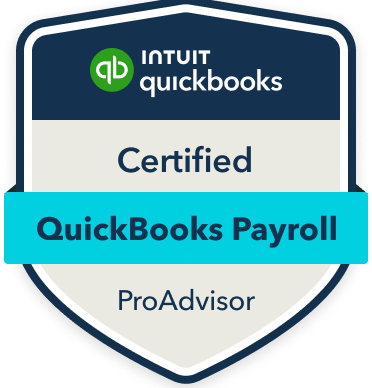Why Regular Bank Reconciliations Are Important for Your Business
Regular bank reconciliations are a vital yet often overlooked part of managing your business’s finances. By regularly comparing your financial records with your bank statements, you can ensure accuracy, detect fraud, and manage cash flow more effectively. Skipping this important task can lead to errors, missed payments, or even bigger financial issues down the line.


Why Regular Bank Reconciliations Are Crucial for Your Business
Bank reconciliation is an essential yet often overlooked task in business financial management. It involves comparing your company’s financial records with the bank’s records to ensure accuracy and catch discrepancies. While it might seem like a tedious chore, regularly reconciling your bank accounts is important for maintaining the financial health of your business. Failing to reconcile your accounts regularly can lead to inaccuracies, missed payments, or worse—potential fraud.
In this post, we’ll explore why regular bank reconciliations are important, the risks of skipping them, and how they can help improve your business’s financial management.
Ensure Accuracy in Your Financial Records
The primary reason for performing bank reconciliations is to ensure that your financial records accurately reflect your business’s cash position. Mistakes can happen, such as double entries, missed transactions, or clerical errors. By reconciling your accounts regularly, you can:
Identify Discrepancies: Bank reconciliations help you catch any discrepancies between your records and the bank’s records. These discrepancies might be as simple as a misreported transaction or as serious as a missing payment.
Spot Data Entry Errors: Regular reconciliations allow you to detect mistakes in your bookkeeping, such as transposing numbers, entering incorrect amounts, or recording transactions in the wrong account.
Verify Transactions: Every transaction recorded in your books should have a corresponding entry in your bank statement. Reconciliation ensures that no income or expenses are missed. Maintaining accurate records is crucial for decision-making, tax reporting, and presenting a clear picture of your company’s financial status to stakeholders.
Detect and Prevent Fraud
One of the most critical aspects of bank reconciliation is its ability to help you detect fraudulent activity. By regularly comparing your internal records with the bank’s statement, you can quickly spot:
Unauthorized Transactions: You can identify any suspicious or unauthorized withdrawals, transfers, or charges that may indicate fraud. This allows you to take action before it becomes a bigger issue.
Duplicate or Missing Payments: Reconciliations help you ensure that each payment or deposit was processed correctly and only once. Duplicate payments can hurt your cash flow, and missing payments can damage relationships with vendors.
Performing bank reconciliations on a regular basis acts as a safeguard for your business’s finances and can help prevent internal or external theft.
Improve Cash Flow Management
Accurate cash flow management is essential for running a successful business. Bank reconciliations give you a clear and up-to-date view of your cash position. By regularly reconciling your accounts, you’ll know exactly how much cash is available for expenses, investments, and other financial obligations.
Avoid Overdrafts: Reconciling your accounts helps you avoid overdrafts by ensuring that your available balance is correct. You’ll know in advance if there’s enough cash to cover upcoming payments or if you need to transfer funds between accounts.
Track Outstanding Checks: Uncashed checks or pending payments can distort your available cash balance. Reconciliation helps you account for these transactions and prevent overdrawing your account.
With an accurate view of your cash flow, you can make more informed financial decisions and avoid unnecessary fees or penalties.
Simplify Tax Preparation
When it’s time to file taxes, having reconciled bank accounts will make the process much smoother. Proper reconciliation ensures that your income, expenses, and deductions are accurately recorded, which is critical for accurate tax reporting.
Benefits during tax season include:
Accurate Financial Data: Reconciled accounts mean you’ll have clean and organized financial data, making it easier to prepare tax returns or work with your accountant.
Minimized Errors: Reconciling helps reduce the chances of errors or omissions in your tax filings, which can lead to audits, penalties, or fines.
Smoother Audits: If your business is ever audited, having a history of reconciled bank statements will make it easier to provide clear documentation and prove the accuracy of your financial records.
Ensure Compliance with Business Obligations
Many businesses are required by law or by stakeholders to perform regular bank reconciliations. This is particularly true for companies that handle large amounts of cash, have complex operations, or work in regulated industries.
Audit Requirements: If your business is audited or required to report to investors, accurate and timely reconciliations ensure you meet compliance standards.
Loan or Credit Applications: When applying for business loans or lines of credit, lenders may request reconciled bank statements as part of their due diligence process. Regular reconciliations ensure that your financial records are always up to date and ready for review.
By keeping your reconciliations current, you’ll always be prepared to meet regulatory or stakeholder expectations.
Strengthen Vendor and Customer Relationships
Accurate reconciliations help prevent payment errors that can harm relationships with both customers and vendors. Ensuring that your payments and deposits are correct:
Prevents Missed Payments: Reconciling your bank account allows you to stay on top of due dates and ensure timely payments to vendors, which strengthens your business relationships and helps avoid late fees or penalties.
Ensures Accurate Invoicing: If you’re receiving payments from customers, bank reconciliation ensures that all transactions are accounted for. This prevents disputes or confusion over unpaid invoices.
Timely payments and accurate billing reflect well on your business and help build trust with both vendors and clients.
Make Better Business Decisions
Bank reconciliation gives you an accurate picture of your business’s financial health, enabling you to make smarter decisions. When you know exactly how much cash you have on hand, you can make informed choices about:
Investments: Understanding your available funds allows you to decide whether it’s the right time to invest in new equipment, marketing, or growth initiatives.
Expense Management: Reconciling accounts helps you track your expenses and identify areas where you might be overspending, allowing you to adjust your budget accordingly.
Future Planning: Regular reconciliation helps you spot trends in your cash flow, such as seasonal fluctuations, which can inform future planning and budgeting.
By using reconciled financial data, you’ll be in a better position to guide your business toward long-term success.
Regular bank reconciliations are crucial for maintaining accurate financial records, detecting fraud, improving cash flow management, and simplifying tax preparation. While the process may seem tedious, it’s a vital part of keeping your business’s finances in check and ensuring long-term success. By staying on top of your reconciliations, you’ll have a clearer picture of your financial health, allowing you to make informed decisions, maintain strong relationships with vendors and customers, and protect your business from potential risks.








